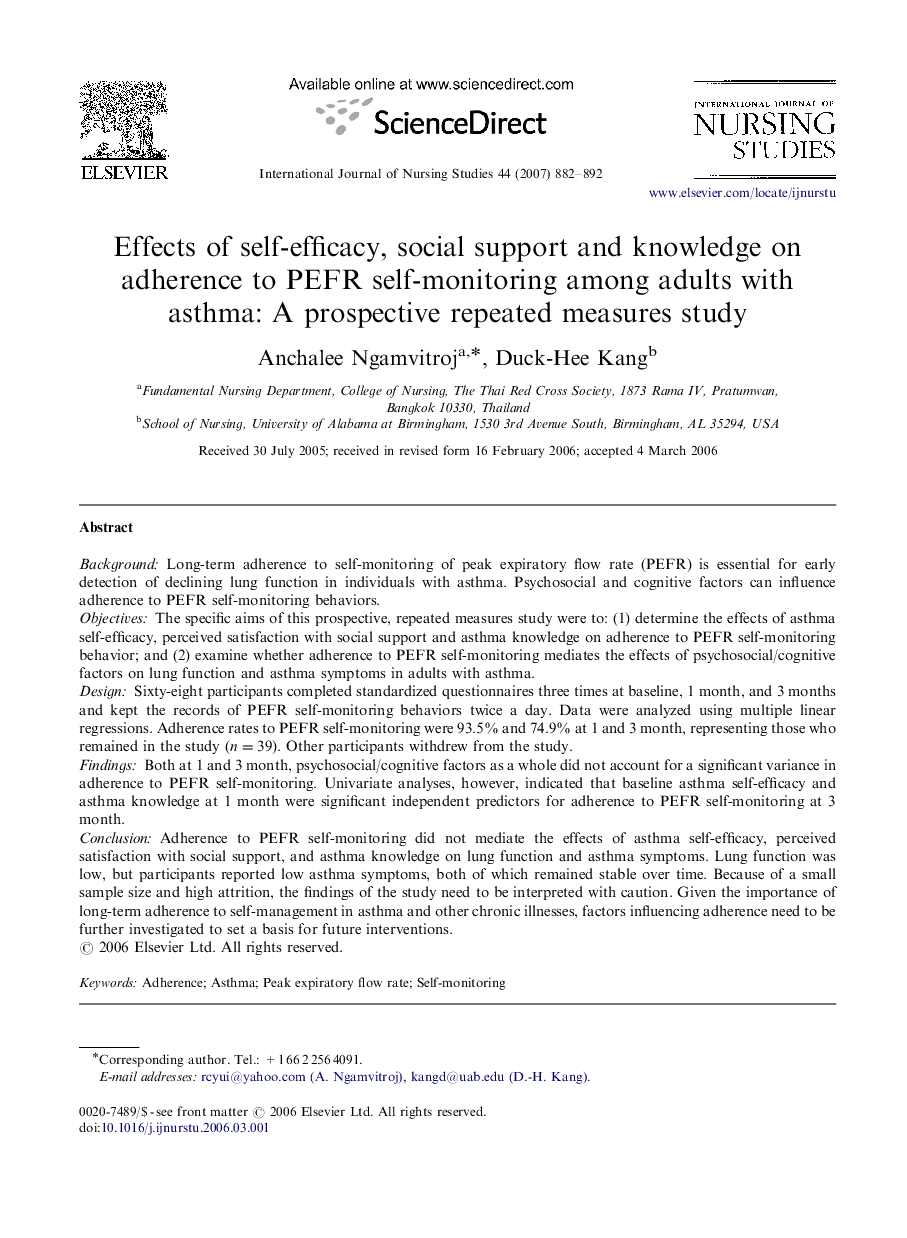| Article ID | Journal | Published Year | Pages | File Type |
|---|---|---|---|---|
| 1077390 | International Journal of Nursing Studies | 2007 | 11 Pages |
BackgroundLong-term adherence to self-monitoring of peak expiratory flow rate (PEFR) is essential for early detection of declining lung function in individuals with asthma. Psychosocial and cognitive factors can influence adherence to PEFR self-monitoring behaviors.ObjectivesThe specific aims of this prospective, repeated measures study were to: (1) determine the effects of asthma self-efficacy, perceived satisfaction with social support and asthma knowledge on adherence to PEFR self-monitoring behavior; and (2) examine whether adherence to PEFR self-monitoring mediates the effects of psychosocial/cognitive factors on lung function and asthma symptoms in adults with asthma.DesignSixty-eight participants completed standardized questionnaires three times at baseline, 1 month, and 3 months and kept the records of PEFR self-monitoring behaviors twice a day. Data were analyzed using multiple linear regressions. Adherence rates to PEFR self-monitoring were 93.5% and 74.9% at 1 and 3 month, representing those who remained in the study (n=39). Other participants withdrew from the study.FindingsBoth at 1 and 3 month, psychosocial/cognitive factors as a whole did not account for a significant variance in adherence to PEFR self-monitoring. Univariate analyses, however, indicated that baseline asthma self-efficacy and asthma knowledge at 1 month were significant independent predictors for adherence to PEFR self-monitoring at 3 month.ConclusionAdherence to PEFR self-monitoring did not mediate the effects of asthma self-efficacy, perceived satisfaction with social support, and asthma knowledge on lung function and asthma symptoms. Lung function was low, but participants reported low asthma symptoms, both of which remained stable over time. Because of a small sample size and high attrition, the findings of the study need to be interpreted with caution. Given the importance of long-term adherence to self-management in asthma and other chronic illnesses, factors influencing adherence need to be further investigated to set a basis for future interventions.
